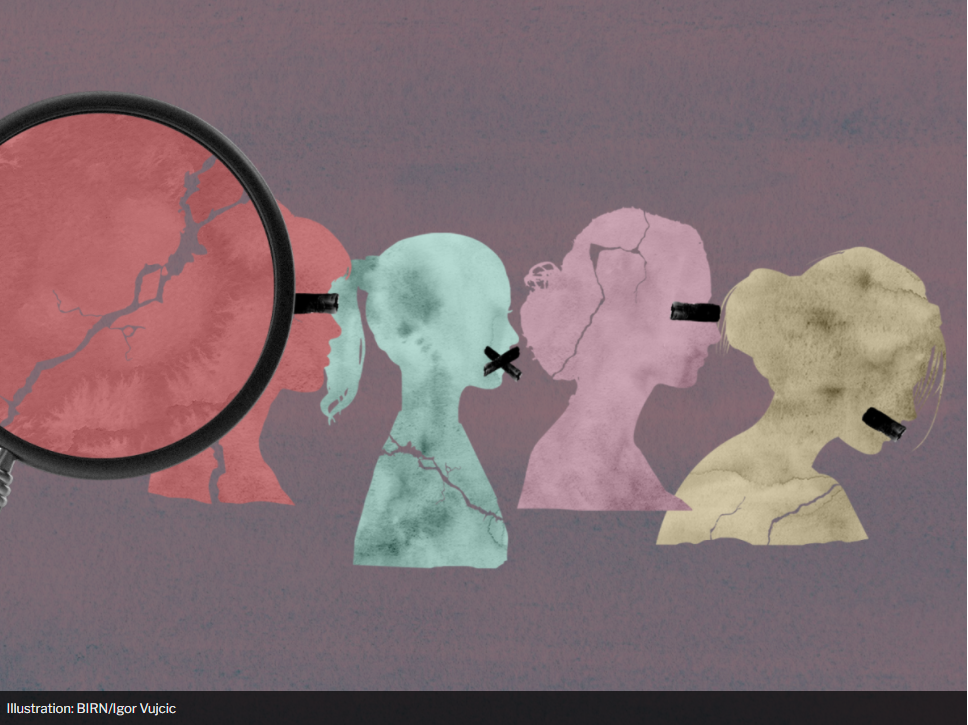Hotline: +381 61 63 84 071
61 journalists in the Balkan region trained on Gender-Sensitive Reporting

NGO Atina held three two-day trainings online on strengthening the capacities of media to combat gender-based violence and human trafficking and to empower women. The trainings took place on December 8-9 and 22-23, 2021, as well as on March 2-3, 2022, for a total of 61 journalists and writers from Albania, Bosnia and Herzegovina, Kosovo, Montenegro, North Macedonia, and Serbia. The aim of the training was to provide information and understanding of the concept of gender-based violence, and gender-sensitive reporting on violence and exploitation as an approach that respects cultural differences and the right to privacy and confidentiality. A particular emphasis was placed on the role of the media and its responsibility in creating a public discourse on the topic of gender-based violence, but also in actions aimed to preserve the privacy and confidentiality of the victims.
The main idea behind the training was to examine and expose worrying and increasing trends in the incidence and prevalence of gender-based violence, both in the offline and online sphere in the Balkan region, particularly during the COVID-19 pandemic. NGO Atina’s Advocacy Group of survivors participated in the creation and design of the training, and also prepared materials, analyzing the contents of the media from the region when it comes to gender-based violence.
Each training consisted of four sessions which covered the topics such as: human trafficking, gender-based violence and methods of combating; prevention of violence against women (inputs of the use of Istanbul Convention and other relevant international legislation); stereotypes, gender roles, and prejudice; links between gender stereotyping and cultural stereotyping; the role of the media in constructing public representation of victims and survivors of GVB; and raising awareness about digital violence against women. In addition to the sessions, trainers also used a variety of educational methods such as: thematic, methodological and political inputs and discussions, simulation exercises, group work, examples of good practices, case studies, etc.
At the beginning of each training, the participants were given entry tests in order to measure their level of the knowledge in the sphere of gender-based violence and human trafficking. All the answers to these questions were provided through the lectures. At the end of the training, the participants were given exit tests, with the same questions, in order to measure the improvement of the knowledge and understanding of the topic. The results have shown that some issues appear to be particularly challenging - rape within a marital union, “guilt” of the victims for their own exploitation, correlation between gender-based violence and human trafficking…
In addition, an evaluation form was also shared at the end of the training, with the intention to assess participants’ satisfaction, but also gather suggestions for future activities of this type based on their choice of the most significant topics that they would like to learn further about in the future. When it comes to satisfaction with the overall organization of the training, 87.9% of the participants gave it the highest mark 5 (highly satisfied), while 12.1% gave it mark 4 (satisfied). As for the extent to which the training met their expectations, a total of 78.2% of the participants gave it the highest mark (fully met), while 21.8% of the participants marked it with 4 (met).
When asked to list two things from the training they would share with their colleagues and friends, participants mentioned interactive methodologies, manner of communication with the victims, forms of violence, devastating statistics from the presentations, and the importance of writing about this topic more often.
As for the topics they would like to hear more about, participants listed digital GBV and abuse, prevention of GBV and human trafficking, human rights issues, further analysis on revenge marriage and cyber abuse, how to report about femicide, and a much-needed training for editors.
All three training were made with support from the Balkan Trust for Democracy, a project of the German Marshall Fund of the United States and the Royal Norwegian Embassy in Belgrade.












 FACEBOOK
FACEBOOK TWITTER
TWITTER YOUTUBE
YOUTUBE